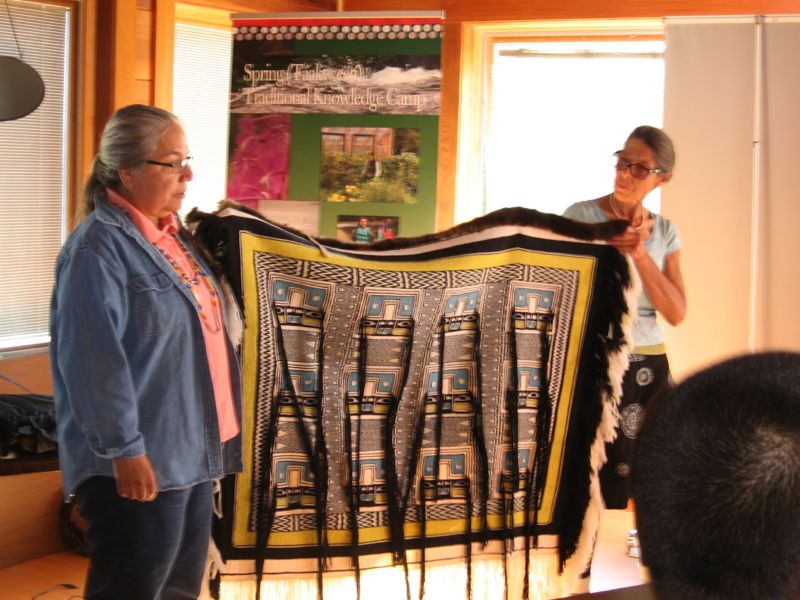Building Relationships 1
A History of Alaska Native-non-Native relationships in Upper Lynn Canal

August 2, 2013, Hospitality House, Klukwan Alaska
*The Alaska Board of Social Work has approved 4 Alaska Native Credits and 1 General Credit (5 CEU’s)*
Schedule - Friday, August 2
8:30 – 9:00 Reception and Registration
9:00 - 12:30 Welcome, Opening Ceremony, Presentation and Discussion
Dan Henry ~ author, local historian, professor, will present a history of first Native/non-Native contact in the Upper Lynn Canal. His research, including transcripts of local elder interviews, inspires questions:
- What was life like before non-Native contact?
- How did experiences of loss of culture and exclusivity to the land effect a people?
- What has been carried through the generations?
- How are non-Native/Native relationships affected by history?
Robin Grace LCSW, ~ psychotherapist, will contribute ideas and questions from emotional, relational and psychological perspectives.
A panel discussion will follow with Dan, Robin and Joanne Elsie Spud ~ SEARHC Behavioral Health Prevention Specialist, lifelong resident of Klukwan.
Unresolved trauma, abuse and loss effects perceptions and impacts individual lives and community. Understanding how we regard and relate to one another can increase empathy and provide a foundation for conflict resolution.
12:30 – 1:45 Community Pot Luck - please bring a dish to share
There will be demonstrations of carving and smoking fish over the lunch hour
1:45 - 4:30 Mentalizing the Alaska Native experience
The goal of this workshop is to provide opportunities to become more aware of cross cultural dynamics (Alaskan Natives and non-Natives) and the influences upon our relationships and treatment. Educators are challenged by the insecurities children experience which influences their capacity to learn – how can we use relationship and environment to enrich opportunity?
Robin Grace, psychotherapist, will briefly review contemporary research in Attachment, Mentalizing and Relational Psychotherapy. References to Dan’s history presentation with attention to Native Elder interviews will be made. A vignette of therapy with a Native Alaskan family and an analysis of the therapist-client relationship, including personal responses, will be a starting point for class discussion. Participants are encouraged to share experiences from the perspectives of non-Natives working with Alaskan Natives and Alaskan Natives working with non-Natives and Alaskan Natives.
Holding mind in mind – developing awareness (mindfulness), is one component of mentalizing. We empathize with people who have experienced trauma. We encounter a range of strategies used to regulate these distressing states. Sometimes we are triggered in the midst of our work. Our disregulated state can have an immediate impact on the “other.” How we recover from these disruptions has an effect upon us as individuals as well as the relationship.
Clinical research links unresolved loss, abuse and neglect to the development of insecurity. Insecure states effects our ability to solve problems, recognize social cues, empathize and reflect. A goal of therapy is the achievement of security which promotes resilience, exploration and interest in others. The ways in which providers relate can have a profound influence upon security.